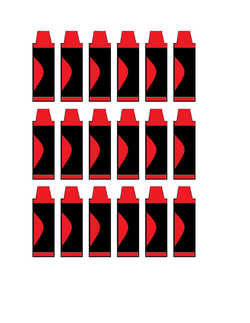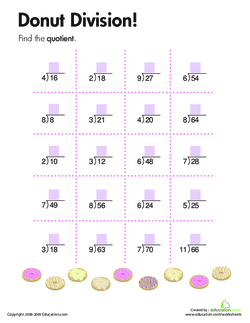- Worksheets
- Games
- Lesson Plans
- Workbooks
- Exercises
- Science Projects
- Skills Progression
- More
You are here:
Lesson Plan
Divide it Up!
Make division come to life with this hands-on, introductory lesson on the operation of division! Students will use authentic problems and manipulatives to experience division in action.
Grade
Subject
View aligned standards
Learning Objectives
Students will be able to use equal groups, drawings, and measurement quantities to solve division problems. Students will construct solutions to solve simple division problems, and will be able to explain and defend how they generated answers for division problems.
The adjustment to the whole group lesson is a modification to differentiate for children who are English learners.
Introduction
(5 minutes)- Invite six students to the front of the classroom to participate in acting out a word problem.
- Read the following word problem: “It is the beginning of a new school year! Six students have one package of 18 pencils. They want to share the pencils equally. How many pencils will each student get?”
- Explain that to solve this problem, you must divide, or separate the pencils into equal groups, each with the same number of pencils.
- Display 18 pencils and ask a different student to act as the “leader” and to distribute the pencils among the students.
- Explain that together, you have just solved the division problem. You started with 18 pencils, and shared them equally between six students, proving that 18 divided by 6 is 3.
- Write the equation on the board for all students to see:
18 ÷ 6 = 3
Beginning
- Provide vocabulary cards to students with key terminology they will use throughout the lesson. Include words, such as: distribute, division, equal groups, divide, equation.
Intermediate
- Ask students to summarize the word problem and its solution to a partner, and then to the whole group.
- Allow students to use their home language (L1) or new language (L2) in their discussions.






